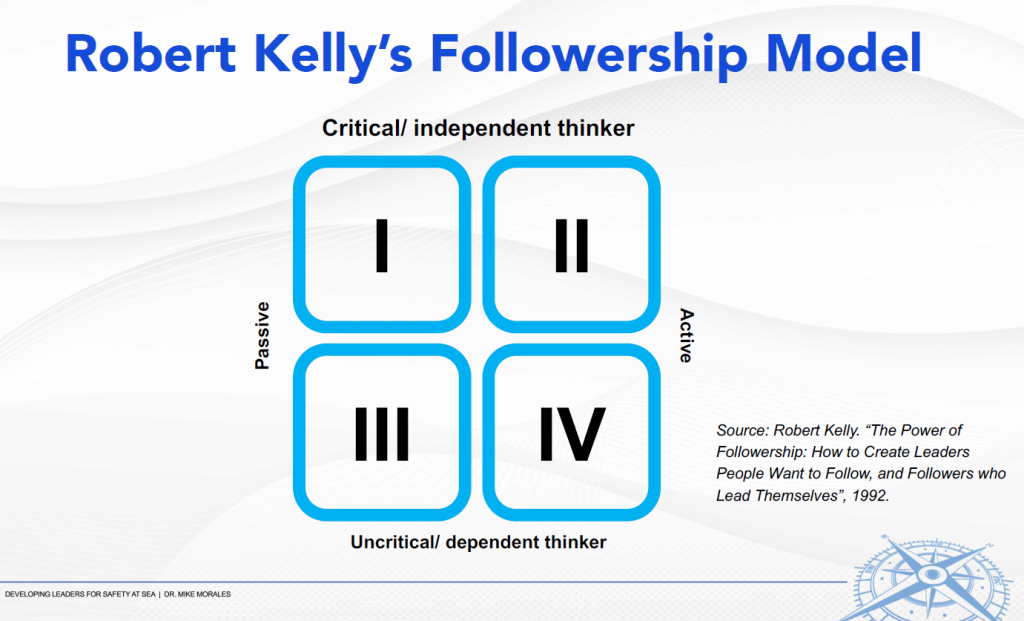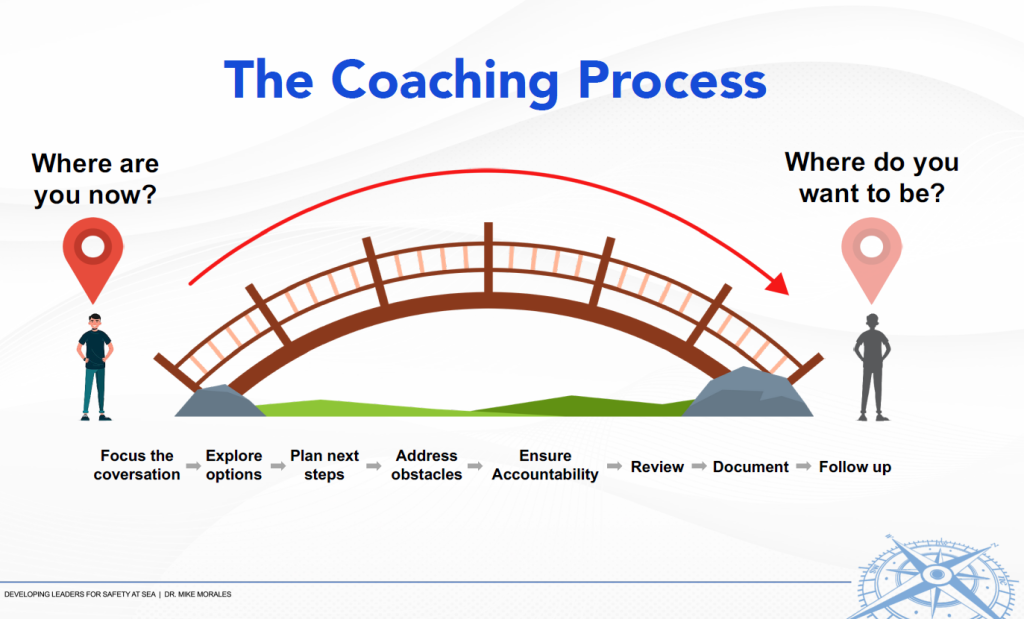During the 2024 SAFETY4SEA Manila Forum, Dr. Mike Morales, President, MOL Magsaysay Maritime Academy, thoroughly explored leadership dynamics in his presentation, analyzing various cultural and psychological factors that influence the relationship between leaders and followers.
How human factors compromise safety
The Costa Concordia sank off the coast of Tuscany in 2012, costing the lives of 33 passengers, crew, and salvage personnel. The captain of this ill-fated vessel was later sentenced to 16 years imprisonment for manslaughter, causing the shipwreck, and abandoning the ship while passengers and crew were still aboard.
The Concordia is just one of the many maritime accidents that have been attributed to human error. The literature shows that as much as 75% of all maritime accidents are due to lapses by the crew.
Several factors have been identified that contribute to human error, including but not limited to fatigue, stress, poor teamwork among the crew, over-reliance on technology, lack of training, and multitasking. We need superheroes aboard ships, but unfortunately, we don’t have superheroes.
I would like to focus on multitasking as a cause of maritime accidents. I have used as a reference excellent comprehensive research by a team of researchers from the University of Tasmania, led by Asanka Rajapakse, now Captain Rajapakse, and his colleagues, who identified three causes of multitasking:
- administrative burden,
- insufficient crewing,
- and the lack of a speak-up culture aboard ship.
Administrative burden refers to the voluminous paperwork and reports required by the crew, the principal, and port state authorities.
Furthermore, insufficient crewing refers to the practice of some companies hiring only the bare minimum complement to comply with regulatory requirements.
Finally, there is the lack of a speak-up culture aboard the ship, which is particularly concerning. In the words of a junior officer in Asanka Rajapakse’s research, “Safety is mainly only talk and paperwork. You make noise about unsafe multitasking, and you will be branded as a troublemaker. We have a motto: the people who are in the good books of the company are the people who keep quiet. We have a motto: somehow, manage the ship with zero accidents, but accidents still happen.“
Meanwhile, another seaman in the paper says: “The bosun is the one getting jobs from the chief officer and passed on to us. Bosun knows we cannot do all the work safely, but he is dead scared of the chief mate and never speaks up to explain the situation. We somehow manage most of the time, but not very safely, doing many jobs simultaneously.”
Unfortunately, taking the above into consideration, seafarers are indeed expected to be some kind of superhero.
The lack of this speak-up culture also affects the aviation industry, and maybe it’s documented better than in the maritime industry, thanks to the black box recordings that record the final conversations between the captain and the first officer just before the crash.
It was found that some of the first officers were too intimidated by a senior captain to say anything about unsafe situations. Many airline pilots have a military background that enforces a rigid hierarchical structure between superiors and subordinates.
This power distance that is found in most military organizations also exists in many Asian countries, like the Philippines, where age, rank, position, and tradition are revered.
The goal is to equip future officers with the knowledge, skills, and attitudes necessary to become excellent seafarers, including the courage to speak up when safety is at risk.
However, training programs and policies are only part of the equation; the underlying cultural realities influencing current generations must also be addressed. As Peter Drucker famously said, “Culture eats strategy for breakfast.” For instance, cultural realities in the case of Asian seafarers, and especially Filipinos, include:
#1 The Asian honor-shame culture:
Honor in this context refers to the esteem or respect that an individual or group receives from society. Acquiring honor and avoiding shame or losing face are the highest goals in the honor-shame society.
#2 Communication is indirect
Body language, or tone of voice, is used to communicate feelings. Sometimes, what is not said is as important, if not more important, than what is said.
#3 Confrontation is avoided
Filipinos are not good at confrontations. And when they do confront, because they’re not used to it, we’re clumsy and we end up being disagreeable. Thus, a person who is steeped in the honor-shame culture would rather not speak to a superior when safety or principle is at risk.
#4 Conformist attitude
A followership model by Robert Kelly is now being used in many leadership training institutions around the world, including the US Service Academies. In this model, there are four quadrants.
The horizontal axis measures the level of engagement of individuals with the goals of the organization. Towards the left (quadrants one and three), a person is passively engaged with the organization.
Towards the right (quadrants two and four), a person is actively engaged with the organization.
On the vertical axis, quadrants one and two are critical thinkers. At the bottom are uncritical or dependent thinkers.
 The passive follower (box III)
The passive follower (box III)
The type is a passive follower and an uncritical thinker. This individual lacks initiative and a sense of responsibility and requires supervision. If left alone, nothing happens, as they rely entirely on the leader for direction. This type of follower is often the result of overly controlling leaders who punish every mistake. You might hear them say, “No talk, no mistake.”
The conformist (box IV)
This concerns a type that is a conformist, an actively engaged but uncritical thinker. This willing participant is overly concerned about avoiding conflict and carries out unethical or even illegal orders. Leaders who are overly controlling and punish every mistake often prefer this type of follower. This type of follower might justify their actions by saying, “I was just following orders.”
Alienated follower (box I)
Number three responds to the passive but critical thinker. This person does not contribute to solving problems and remains silent in meetings and conference rooms. They might have been effective previously but experienced frustration or abandonment, leading to their current state. You might hear this person say, “I told you so.” They remain silent during meetings but give lengthy speeches during informal settings like coffee breaks.
The effective follower (box II)
Finally, number four refers to an effective follower, a critical thinker who is actively engaged. This individual has the courage to initiate change and courageously dissent when necessary. They are products of good mentoring and affirming role models. You might hear them say, “Captain, I recommend we reduce speed in these restricted waters.”
Furthermore, there are other cultural concerns such as power distance, colonial mentality, gender stereotypes, and the learning challenges of Generation Z.
Looking forward
Transitioning cadets from passive, conformist, and alienated individuals to effective followers and excellent merchant mariners involves immersive training, leadership development, and a strong safety culture.
Leadership training and mentorship programs help cadets develop responsibility and decision-making skills, emphasizing the importance of effective followership.
 Additionally, promoting a culture of safety is paramount; cadets must understand the significance of speaking up when safety is at risk.
Additionally, promoting a culture of safety is paramount; cadets must understand the significance of speaking up when safety is at risk.
By fostering active participation, leadership qualities, and a strong safety ethos, cadets will become proactive, responsible, and communicative, ready to contribute to a safe and efficient maritime environment.
Above article has been edited from Dr. Mike Morales’ presentation during the 2024 SAFETY4SEA Manila Forum with minor edits for clarification purposes.
Explore more by watching his video presentation here below
The views presented are only those of the author, do not necessarily reflect those of SAFETY4SEA, and are for information sharing and discussion purposes only.

































































